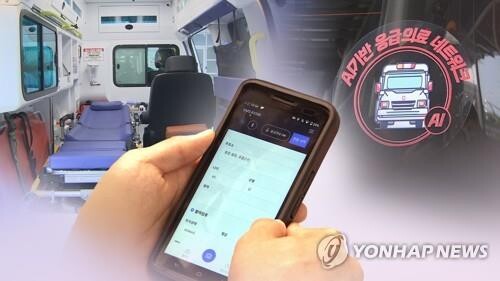*Editor’s note: The number of global Hallyu (Korean Wave) fans is approaching approximately 225 million, according to the 2024 report by the Korea Foundation. The surge in fans marks the dawn of the "Digital Silk Road" era, where communication transcends the limitations of time and space, enabling real-time interaction across the globe. Truly, we are in the era of "Hallyu 4.0."
Innovation in Healthcare through AI
Contributed by Suk Soo-sun (professor at Yonsei Graduate School of Communication & Arts)

SEOUL, Oct. 14 (Yonhap) -- The advancement of AI is producing remarkable outcomes across various fields, often surpassing human capabilities. This trend is particularly evident in the healthcare sector, where AI is being harnessed to assist medical professionals, improve patient health outcomes, and enhance workflow efficiency, thus ushering in a new era of innovation.
AI's potential spans every stage of healthcare, from diagnosis to treatment and home care, offering support to both medical experts and patients. As a result, a harmonious integration of AI and medical technology has emerged as a key value in modern healthcare. The current trend emphasizes AI and robotics-based designs that can promptly meet user needs, creating a more adaptive and responsive healthcare environment.
In healthcare, diagnosis is just one part of a doctor's multifaceted role. Physicians are involved not only in diagnosing and researching diseases but also in communicating with patients and caregivers to make comprehensive decisions. Additionally, they perform surgeries, administer treatments, and manage various administrative duties within medical institutions. Due to these wide-ranging responsibilities, healthcare professionals often face high levels of fatigue from the excessive workload.
AI helps alleviate this burden by assisting with tasks like data interpretation, enhancing the accuracy and efficiency of patient diagnoses and treatments. It can also propose personalized treatment plans for continuous care, tailored to individual needs.
 |
| ▲ This image of AI-assisted ambullance call, captured from Yonhapnews TV, shows the technological advancement in the South Korean emergency medical services. (Yonhap) |
AI has proven particularly effective in medical image analysis. Utilizing deep learning algorithms, it can analyze X-rays, CT scans, MRIs, and more, aiding in the early detection of diseases. The applications of AI extend beyond imaging to include ultrasound analysis, radiological diagnostics, cancer treatment collaboration, minimally invasive surgeries, and cardiac patient monitoring. By improving diagnostic accuracy, accelerating treatment processes, and enhancing patient experiences, AI is driving innovation across multiple facets of healthcare, leading to increased efficiency and patient safety.
Moreover, AI is being employed in clinical research to process and analyze medical records. Through analyzing these records, AI can extract patterns and key information about diseases, enabling doctors to efficiently manage a diverse array of patient cases and clinical histories, which in turn aids in developing appropriate treatment plans. It also facilitates remote consultations, improving the accessibility of healthcare services.
This ability to connect patients with medical professionals more easily, regardless of distance or time constraints, allows patients to obtain the necessary information and care they need. It offers suitable diagnosis and prescriptions for vulnerable groups such as those in remote areas, the elderly, low-income individuals, and patients with sub-emergency conditions. Additionally, it can reduce the time and financial burden associated with hospital visits.
Many companies are introducing AI-based healthcare solutions, particularly in environments where medical expertise is scarce. These solutions help fill gaps in collaborative care systems and support healthcare professionals in areas with limited access to specialist consultations.
Advances in AI technology have improved communication between patients and healthcare providers, facilitating the rapid exchange of essential information. Patients can better understand and manage their conditions, improving their quality of life, while healthcare providers benefit from reduced stress from repetitive questions and administrative burdens, allowing them to focus more on diagnosis and treatment.
By enhancing the efficiency of healthcare providers, AI holds great potential to elevate the quality of medical services. Physicians have come to understand the benefits that AI brings to their workflows and are actively embracing these tools to improve patient care.
 |
| ▲ This image provided by Samsung Electronics shows the firm's Electronics' Galaxy Ring as an example of the patient-tailored medical design. (PHOTO NOT FOR SALE) (Yonhap) |
According to a recent survey conducted by the American Medical Association (AMA), 69% of the responding physicians believe that AI can help improve workflow efficiency, while 54% expect that it can reduce the burden of documentation. Notably, 72% of the surveyed physicians think that AI could be beneficial in improving patient diagnosis.
AI-powered medical devices and platforms have the capability to analyze accumulated health data, aiding in disease prevention, treatment, health management, and even detecting patients' emotional signals. There is a strong need for the development and implementation of patient-friendly AI medical services. These innovations in design can be especially valuable, providing support and guidance to individuals facing health challenges.
(C) Yonhap News Agency. All Rights Reserved



































